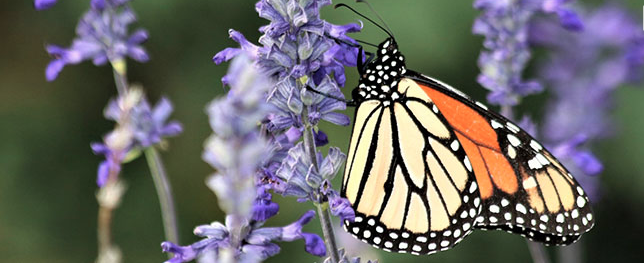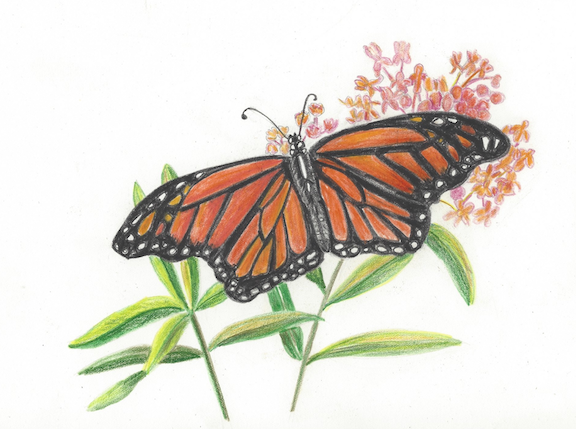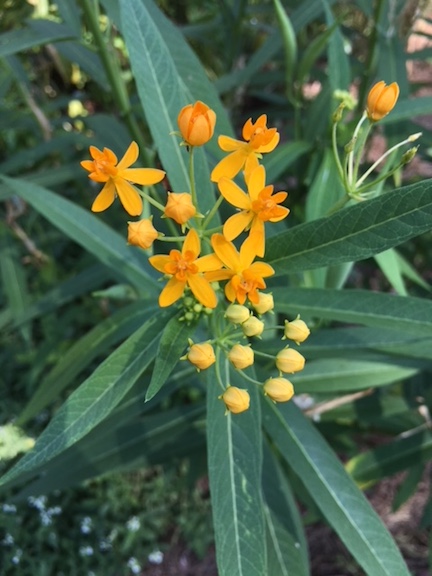I couldn’t begin to write the mathematical formula nor fully explain the scientific theory commonly called the “butterfly effect” which indicates that (as one scientist put it) that the flap of a butterfly’s wings in South America can cause a tornado in Texas. Or, as he hastens to add, the butterfly NOT flapping its wings may cause a tornado. The basic idea, though, is that minute events or occurrences (or their lack) may have consequences that are magnified and felt in an entirely different part of the world.

I thought about this as I was clipping the last blooms from my summer garden for a bouquet. Since there were still a few butterflies milling about, seeking the last bit of summer from a few remaining salvia blooms, I began thinking, literally, of the butterfly effect in my garden. How do my actions as a gardener impact the pollinators that come here? As I cut and tidied the garden, it occurred to me that maybe I shouldn’t. Maybe I need to leave every last bloom for the last lingering butterfly.

But then again, maybe I should clean up the remnants of the season. I don’t want to trick the pollinators into thinking that this is endless summer. With climate changes and prolonged seasons, pollinators are confused enough. So, what consequence does it have for monarchs who generally head for Mexico at this time of year, if I leave lots of yummy looking milkweed leaves for them? Do they settle in and get comfortable, only to perish in the first killing frost?

But then again, what if the monarchs have had a rough summer (heat, drought, extreme humidity) and my milkweed, still in bloom, provides enough nectar for them to make the trip south? Or what if my scraggly looking phlox provides protection and cover for the larvae of the painted lady butterfly?

And, of course, the same theory can be applied to all kinds of decisions in the garden. What if I choose to plant all double flowered impatiens next year? They provide neither nectar nor pollen nor protection for birds and butterflies. Will all my pollinators get fed up and leave my garden for more productive spots? Can they find such spots close by? Or, what if I left my garden looking completely wild and natural and the neighborhood association takes offense and makes me cut it all down, depriving both me and my pollinators?
I don’t know. All any of us can do is to find balance and stay in tune with the natural rhythm of the earth. I’ll leave a lot of seed heads and garden debris for the songbirds, but not enough to irritate the neighborhood association! I’ll cut back the butterfly weed for it’s really at the end of its natural season anyway. I’ll cut a few last roses and lantana blooms for the house and leave the rest.

All we can do is to make the best choices we can. All we can do is to be conscientious stewards of any kind of land that we call home. All we can do, really, is just love the earth with all our heart.

Amen.